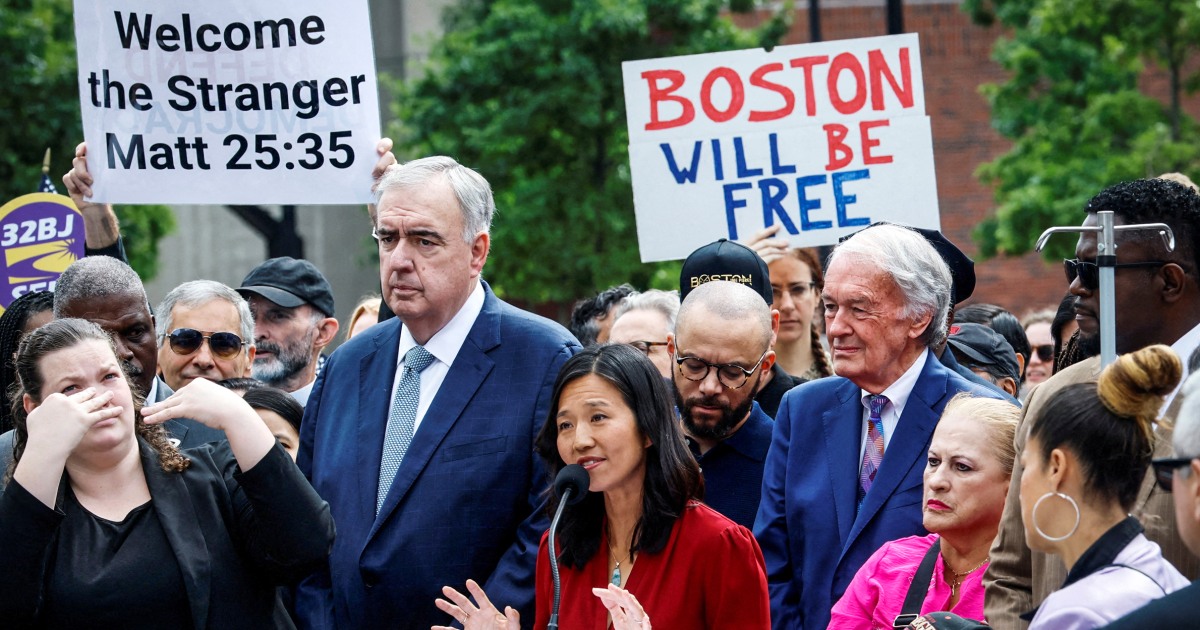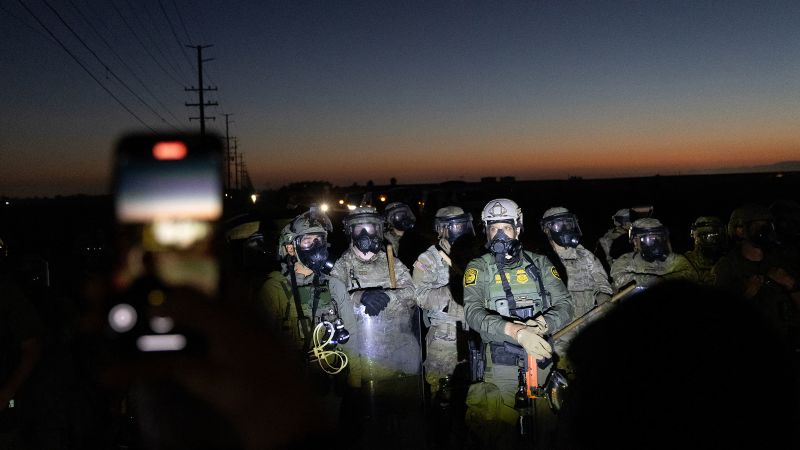Trump Administration vs Democratic-Led Cities: The Boston Immigration Lawsuit
#trump_administration #democratic_cities #boston #immigration
Introduction
The recent lawsuit filed by the Department of Justice against the city of Boston is the latest development in the ongoing conflict between the Trump administration and Democratic-led cities. This time, the focus is on Boston's immigration enforcement policy, which has drawn the ire of the federal government.
Background
The lawsuit is a result of the city's refusal to cooperate with federal immigration authorities, a stance that has been adopted by many other cities across the country. This has been a major point of contention between the Trump administration and these cities, which have argued that their policies promote community trust and safety.
In response to the lawsuit, Boston's Mayor Marty Walsh has criticized the federal government, stating that "no one should have to live in fear because of their immigration status." This sentiment echoes that of other Democratic leaders who have opposed the Trump administration's aggressive immigration policies.
Implications
The lawsuit is just one example of the ongoing battle between the federal government and cities that have taken a different approach to immigration enforcement. This clash of ideologies has far-reaching implications, not just for the city of Boston, but for the entire country. As the legal battle continues, the outcome will have a significant impact on the relationship between local and federal authorities when it comes to immigration policies.
About the Organizations Mentioned
Department of Justice
The **United States Department of Justice (DOJ)** is a federal executive department responsible for enforcing federal laws, ensuring public safety, defending the interests of the United States, and upholding civil rights. Established in 1870 to consolidate federal legal affairs under the Attorney General, the DOJ has grown into a vast organization with over 115,000 employees and a budget exceeding $22 billion[1][4][5]. It operates through more than 40 component organizations, including prominent law enforcement agencies such as the Federal Bureau of Investigation (FBI), Drug Enforcement Administration (DEA), Bureau of Alcohol, Tobacco, Firearms and Explosives (ATF), and the U.S. Marshals Service[1][4][5]. The DOJ’s core mission is to uphold the rule of law, keep the nation safe, protect civil rights, and ensure a fair and impartial administration of justice across federal, state, local, tribal, and international levels[2][5]. It investigates and prosecutes federal crimes, including terrorism, drug trafficking, organized crime, financial fraud, and cybercrime. The FBI, as the DOJ’s principal investigative arm, leads in areas such as counterterrorism, counterintelligence, and cybercrime[6]. Additionally, the DOJ manages federal prisons and provides leadership and resources to state and local law enforcement agencies. Historically, the DOJ’s origins trace back to the Judiciary Act of 1789, which created the Attorney General's office. Its establishment as a separate department in 1870 allowed for greater coordination of federal law enforcement and legal representation of the government[2][4]. Over time, the DOJ has played a critical role in landmark civil rights enforcement, combating organized crime, and adapting to modern challenges such as cyber threats and international criminal cooperation[1][5]. Today, headquartered in Washington, D.C., with field offices nationwide and abroad, the DOJ continues to influence national security and justice policy, balancing traditional law enforcement with evolving technological and societal demands.

















